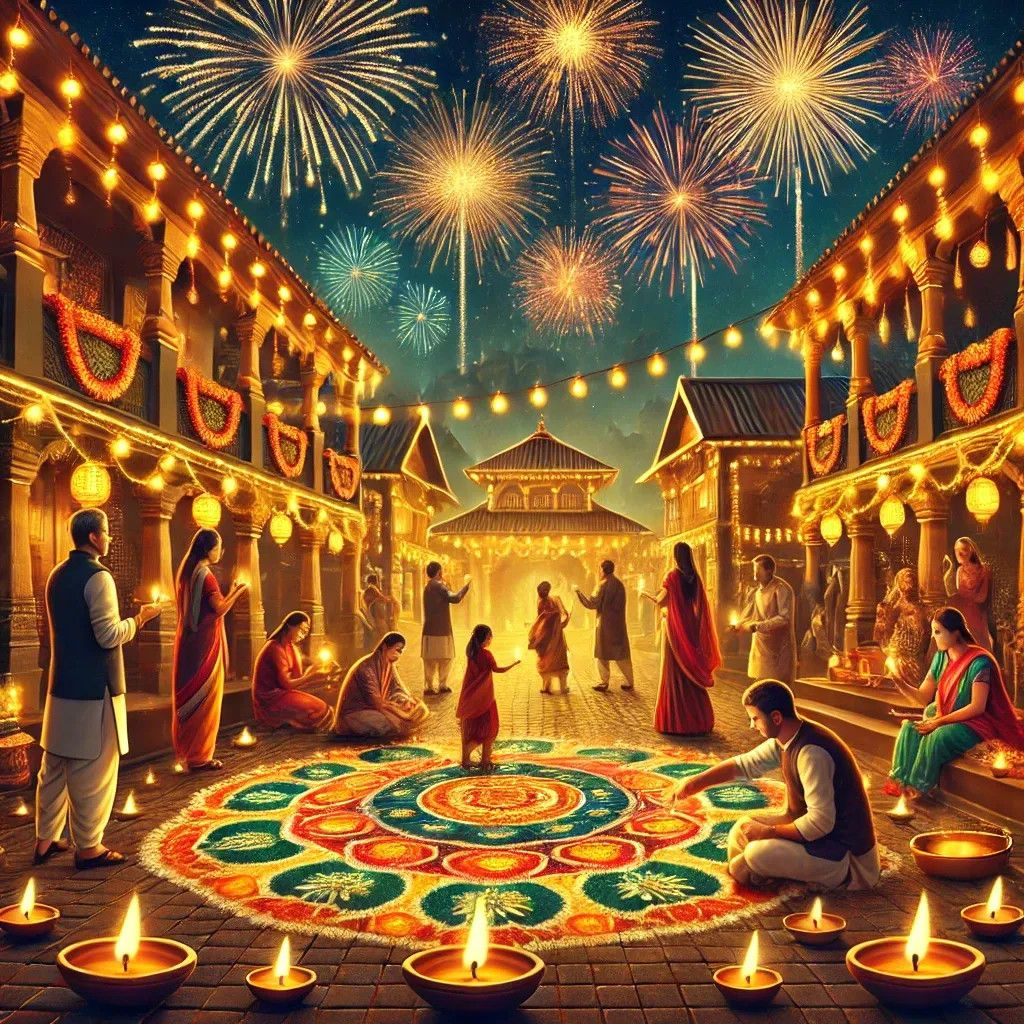Discover Diwali Traditions, Lights, and Unique Flavors
Why does Diwali, the radiant Festival of Lights, captivate millions around the world each year? This joyous celebration is not only about lighting up homes and hearts but also carries traditions that resonate with everyone who takes part. Dive into the essence of Diwali, where lights symbolize hope, sweets convey unity, and traditions connect generations.
Diwali Festival Period
Diwali is one of the most awaited festivals in India and beyond. Typically occurring between October and November, Diwali is celebrated on the 15th day of the Hindu lunar month of Kartika. The festival spans five days, each symbolizing various aspects of love, light, and spirituality. The first day, Dhanteras, marks the start, where families clean homes and buy gold or utensils, signifying wealth and prosperity. This is followed by Naraka Chaturdashi, the day that focuses on self-reflection and the purification of homes.The third day, which is the most anticipated, is Diwali itself. On this day, homes are adorned with oil lamps and colorful rangoli patterns, while prayers are offered to Goddess Lakshmi for prosperity and Lord Ganesha for wisdom. In the days that follow, Govardhan Puja and Bhai Dooj celebrate the bonds between siblings and the importance of family.
- Diwali lasts for five days, each with unique significance.
- The main day of Diwali celebrates the victory of light over darkness.
- Dhanteras and Naraka Chaturdashi emphasize prosperity and cleansing.
- Families prepare for weeks in advance to honor traditions fully.
- The period between October and November varies based on the Hindu calendar.
Diwali is more than just a festival—it’s a period when communities come together to celebrate hope, gratitude, and love.
Diwali Festival Lights
The highlight of Diwali is the dazzling display of lights that illuminate homes and streets. Diyas, small oil lamps, are the quintessential symbols of Diwali. Lit to dispel darkness and bring positivity, these diyas are often placed at entrances, windows, and balconies, creating an ethereal glow that fills neighborhoods. Alongside diyas, modern electric lights and lanterns add to the splendor, and vibrant rangolis on the floors add artistic flair to the celebration.The use of diyas is more than decoration—it carries spiritual significance, symbolizing the soul’s triumph over ignorance and darkness. Fireworks, another significant aspect of Diwali, burst into the night sky, embodying the joy and excitement of the festivities.
- Diyas are lit in every home to dispel darkness and bring positivity.
- Electric lights and lanterns add to the festive ambiance.
- Rangolis showcase the creative aspect of Diwali celebrations.
- Fireworks symbolize the joy and spirit of the festival.
- Lights unite neighbors, friends, and family in celebration.
The combination of traditional diyas and modern decorations creates an ambiance that truly makes Diwali the Festival of Lights.
Diwali Festival Food
Food is a cornerstone of Diwali celebrations. Families come together to prepare a spread of delectable sweets and savory treats. Traditional Indian sweets like laddoos, barfis, and jalebis fill homes with irresistible aromas and are shared with friends and neighbors. Savory dishes like samosas, kachoris, and chaats add to the indulgence, ensuring that Diwali is a feast for all senses.Diwali is also a time for new beginnings, and many families prepare unique regional dishes to honor the festival. In the northern regions, dishes like chole and puri are staples, while in the south, traditional sweets like murukku and adhirasam hold prominence. In Maharashtra, sweets like karanji and shankarpali are must-haves, symbolizing love and joy.
- Laddoos, barfis, and jalebis are popular Diwali sweets.
- Samosas, kachoris, and chaats add variety to the spread.
- Each region in India has unique dishes to mark the festival.
- Sweets are often prepared at home, adding a personal touch.
- Sharing treats with neighbors strengthens community bonds.
These delicious offerings transform Diwali into a festival of flavors, where food becomes a medium to share happiness.
Conclusion
Diwali is more than a festival; it’s a celebration of love, light, and unity that transcends boundaries. As Mahatma Gandhi once said, “In a gentle way, you can shake the world,” and Diwali embodies this belief, spreading light and joy across communities. Through its traditions, lights, and flavors, Diwali serves as a reminder that light will always overcome darkness, and togetherness can bring peace to every soul.






